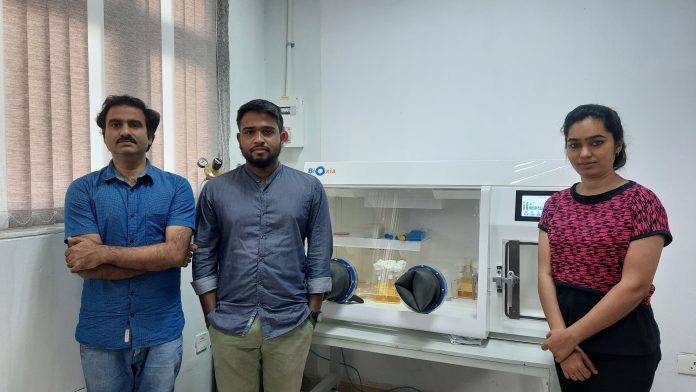
BHOPAL: In a significant discovery, researchers at the Indian Institute of Science Education and Research (IISER) have shown differences in the type of gut bacteria between Indian and Western populations.
These variations arise from the differences in the diet patterns in these two regions, with the Indian diet being richer in carbohydrates and fibre than the Western, according to the research done at the Bhopal-based institute.
Dr. Vineet K. Sharma, Associate Professor in the Department of Biological Sciences at IISER, along with his collaborators from the South Dakota State University of the USA has also elucidated the relationship between gut bacteria and inflammatory diseases such as Irritable Bowel Syndrome (IBS).
The human gut contains 300-500 types of bacteria that are necessary for our survival. These bacteria help in digestion, protect us from infections and even produce essential vitamins and neurochemicals.
In 2011, German scientists classified human beings into three “enterotypes”, depending on the kind of bacteria that dominates the gut – Prevotella, Bacteroides or
Highlighting the uniqueness of his research, Dr Sharma said, “Most enterotype studies are largely based on the Western population and have not correlated the type of dominant gut bacteria with the type of diet.”
In the largest gut metagenome study from India, the IISER team studied the bacterial profile of 200 gut samples taken from people from several Indian locations – Madhya Pradesh, Delhi-NCR, Rajasthan and Maharashtra, Bihar, and Kerala.
The researchers found that the Indian gut microbiome has the highest abundance of the Prevotella genus of bacteria, in particular, a species called Prevotella copri.
This bacterium also dominates the guts of other populations that consume a carbohydrate- and fibre-rich diet, such as the Italian, Madagascarian, Peruvian, and Tanzanian. The gut microbiomes of people from Western countries like the USA are dominated by Bacteroides.
To understand the functional roles of the Prevotella type bacteria, the researchers performed genomic analyses and found that the bacteria contained specific locations (“loci”) in their genomes that are responsible for metabolising complex plant carbohydrates and fibres. It is thus logical that this type of bacteria predominates the gut microbiome of healthy Indian and non-western population that consumes a diet rich in plant-carbohydrates and fibres.
Speaking about the practical implications of his work, Dr. Sharma said, “Our insights would help in the development of new probiotics and prebiotics for different health-related conditions associated with the gut which is much needed for non-western populations.”







